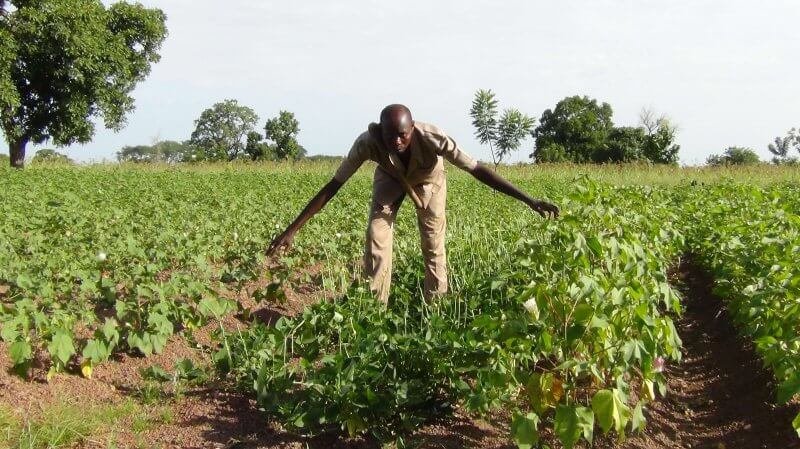
The country consumes more than 3.6 million tonnes of cowpea annually, but it still must import 500,000 tonnes of cowpea annually to meet local demand.

Cowpea, or beans, is a popular, protein-rich delicacy that is usually cooked and eaten with other carbohydrate sources.
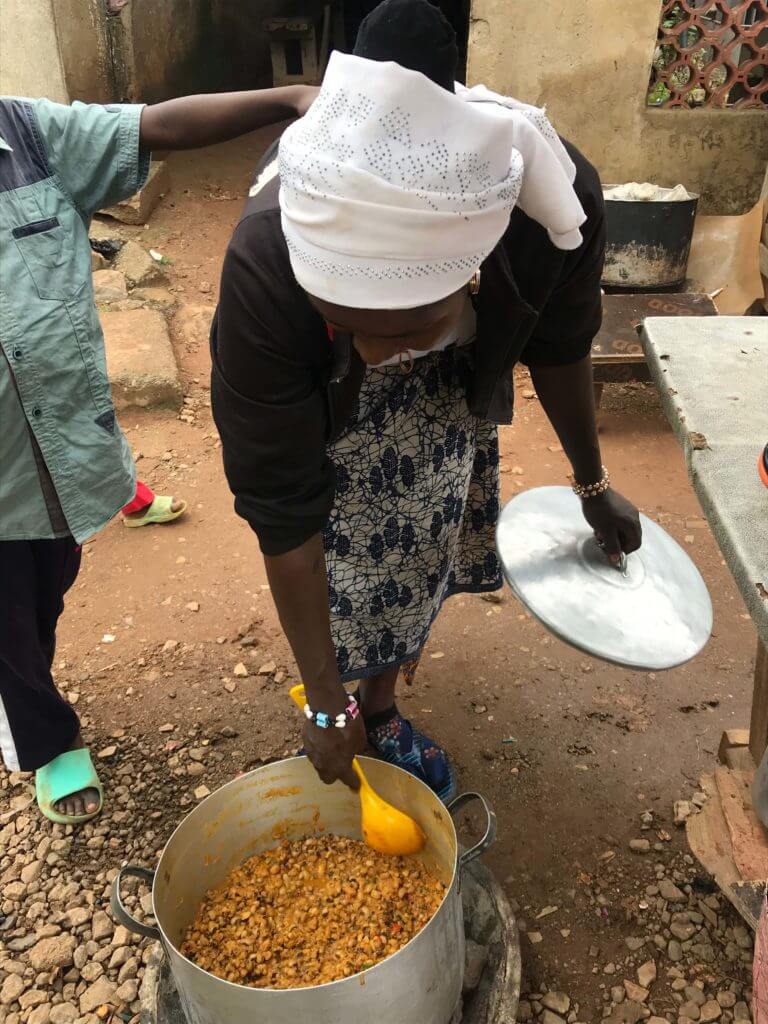
Beans is eaten with rice sometimes.

Beans is also used in making akara, a popular breakfast meal. Akara is usually eaten with porridge.
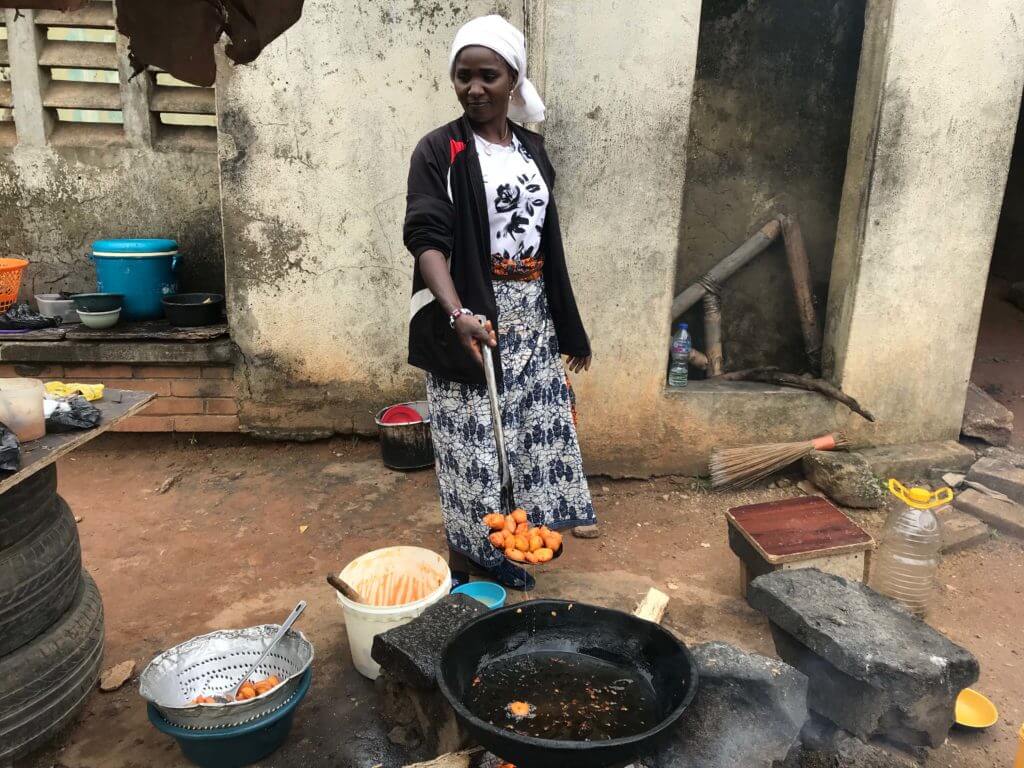
Maruca pests feed on cowpea plants, sometimes causing farmers to lose 80 to 100 percent of their crop. To control the pod borer pest, farmers typically spray their fields with insecticides between eight and 12 times in the 12-week life cycle of the crop.
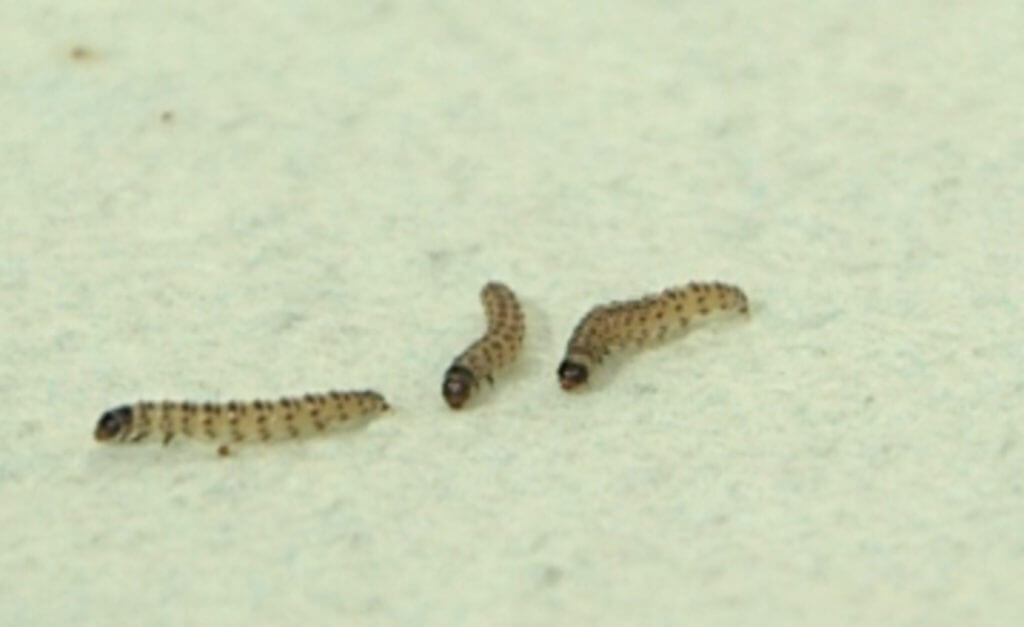
Sometimes, traders in markets have to dry the cowpea in the sun and spray additional chemicals on them to destroy pests.
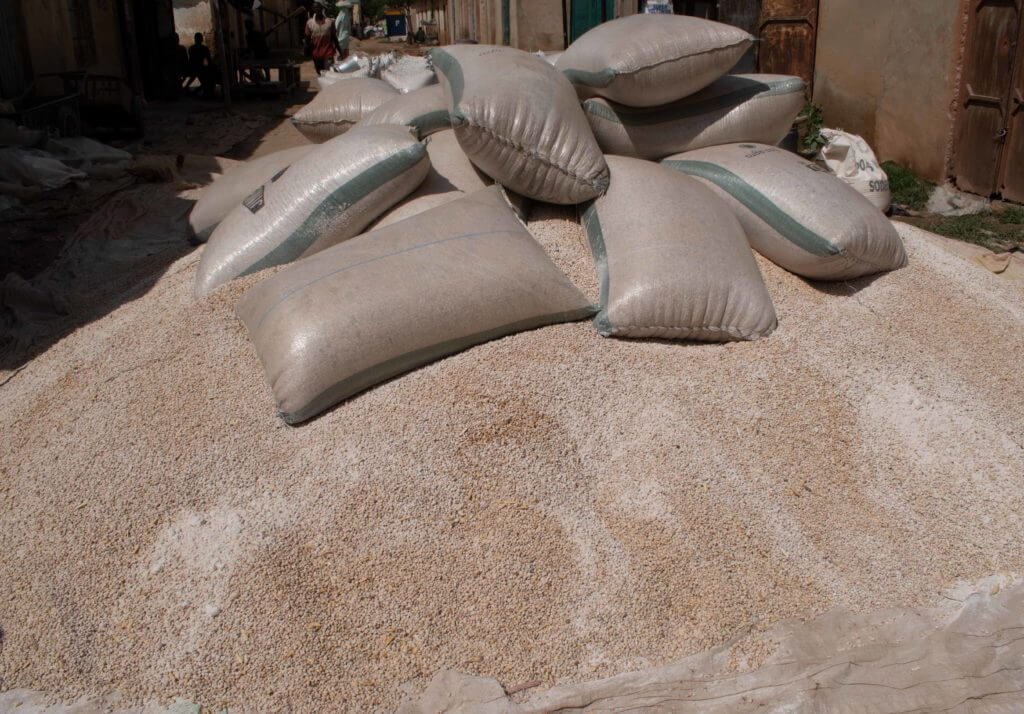
About a decade ago, the Institute for Agricultural Research at the Ahmadu Bello University started developing a genetically modified (GM) cowpea variety that uses a gene from Bacillus thuringiensis (Bt) to provide inherent resistance to Maruca pest attacks.

In 2019, the Nigerian government approved the GM pod borer-resistant (PBR) cowpea for commercial release. The crop is expected to help increase production and support food security by reducing the need for imports.
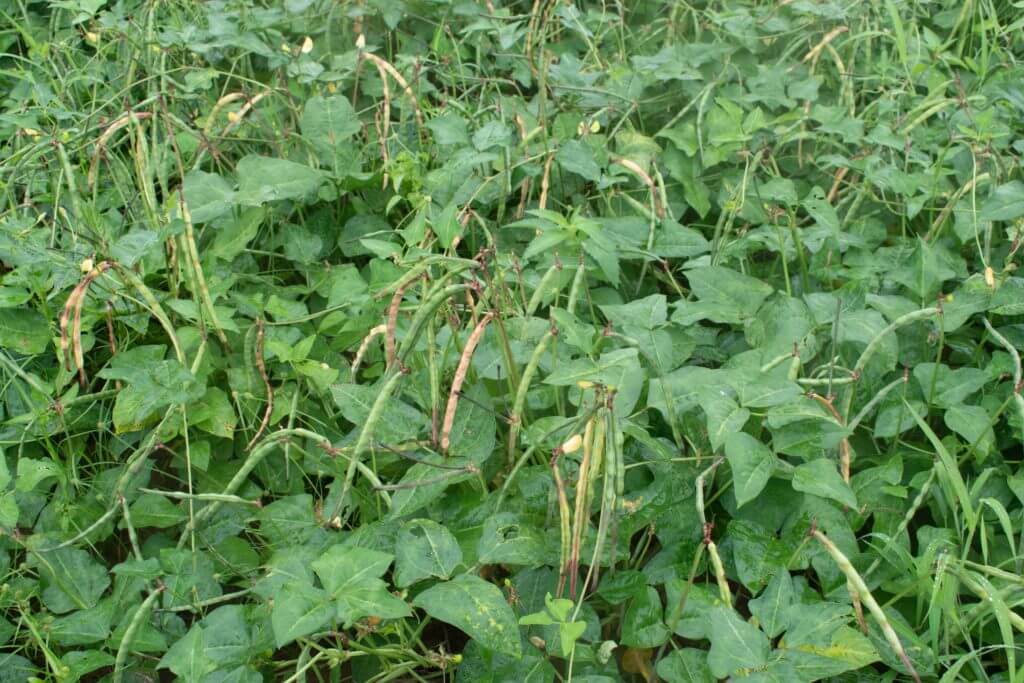
Farmers are excited about the opportunity to grow GM cowpea. Alhaji Ali Tsalaha Hayinsambo displays GM seeds saved from last year.
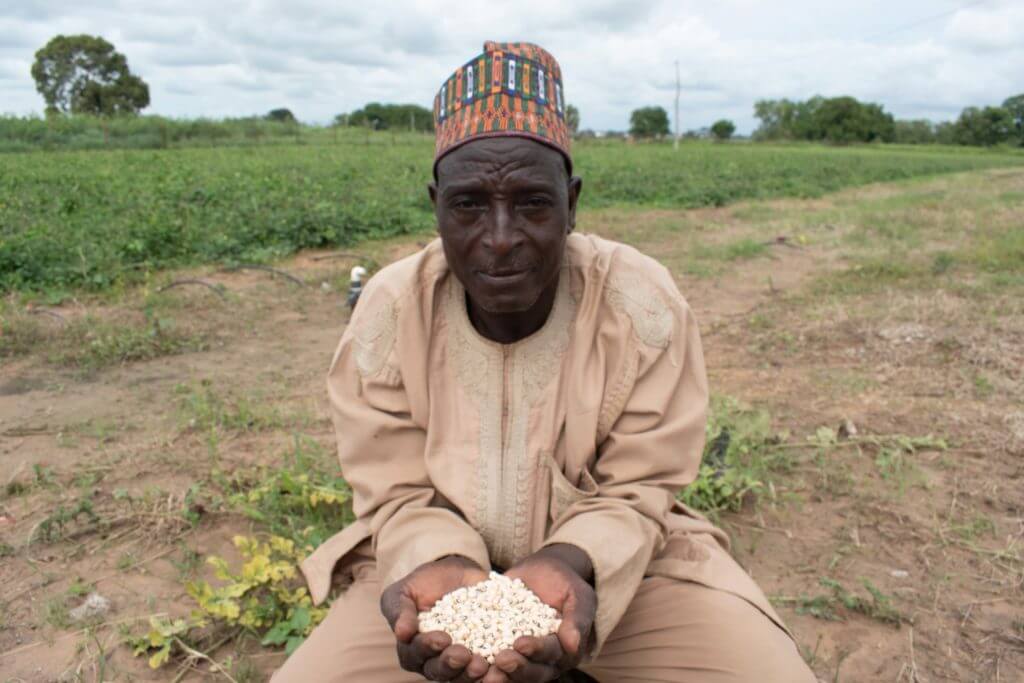
Farmers like Sylvanus Ahiaba don’t have to spray their fields up to a dozen times in the three-month life cycle of their crop anymore. With the GM cowpea, they spray a maximum of twice.
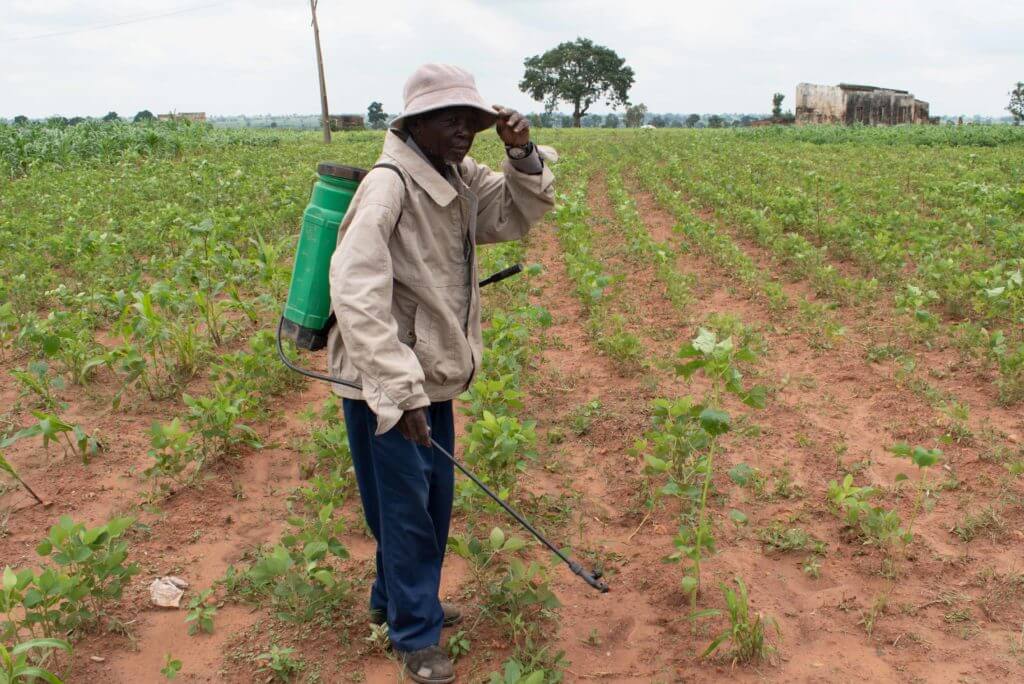
Even with just two sprays, Sylvanus Ahiaba’s GM cowpea fields is healthy.
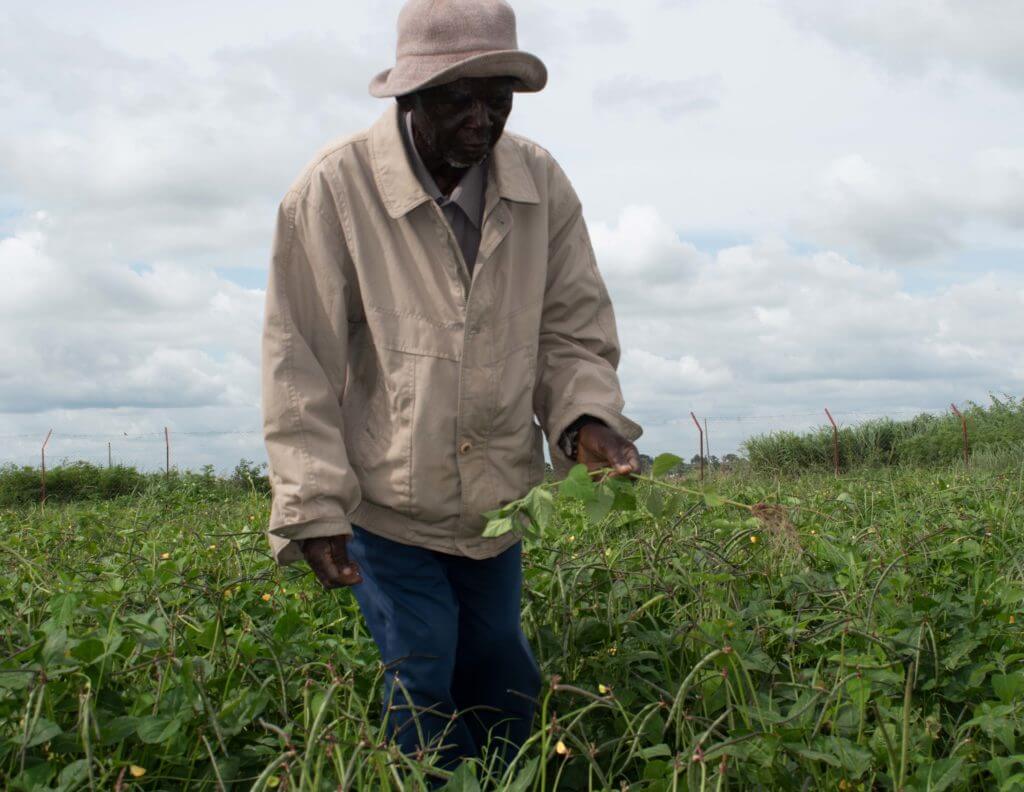
Farmer Lawal is also pleased with his healthy GM cowpea fields, which are flowering heavily.
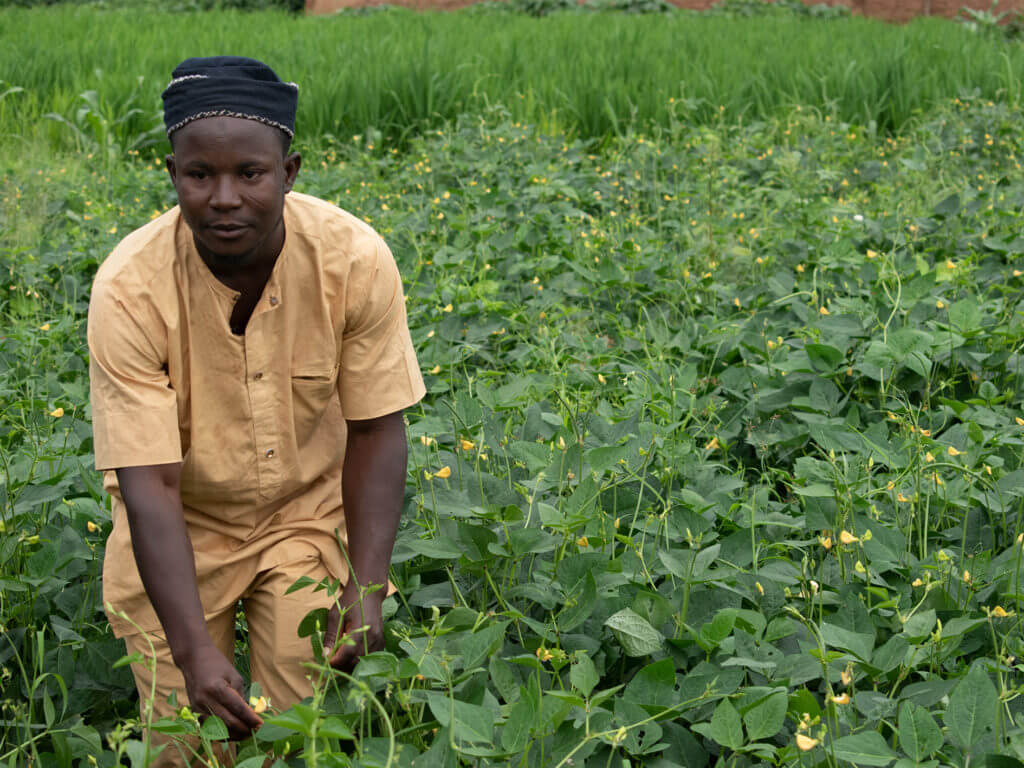
Farmer Hajia Dijesaidu displays the insect-free pods of her GM cowpea crop, which is intercropped with maize.

Youth have embraced the new technology, too, with 19-year-old farmer Osman Yahyah Alhassan showing off his GM cowpea farm.

Just as the research was done by Nigerian scientists, GM cowpea seeds are managed by Nigerian seed companies like Maina Seeds, which sell the GM cowpea seeds to farmers in packages like this.

The Nigerian government was caught off guard by the popularity of the crop, as farmers clamoring for the improved seed quickly depleted supplies. Steps are now being taken to increase the supply for the next planting season so that more farmers can enjoy the benefits of higher yields with reduced pesticide use.
Joseph Opoku Gakpo is a 2016 Cornell Alliance for Science Global Leadership Fellow and contributes to the Multimedia Group Limited in Ghana, working with Joy FM, Joy News TV, and MyJoyOnline. He has a master’s degree in communications studies from the University of Ghana and is a member of the Ghana Journalists Association. Find Joseph on Twitter @josephopoku1990
A version of this article was originally posted at the Cornell Alliance for Science and has been reposted here with permission. The Cornell Alliance for Science can be found on Twitter @ScienceAlly

